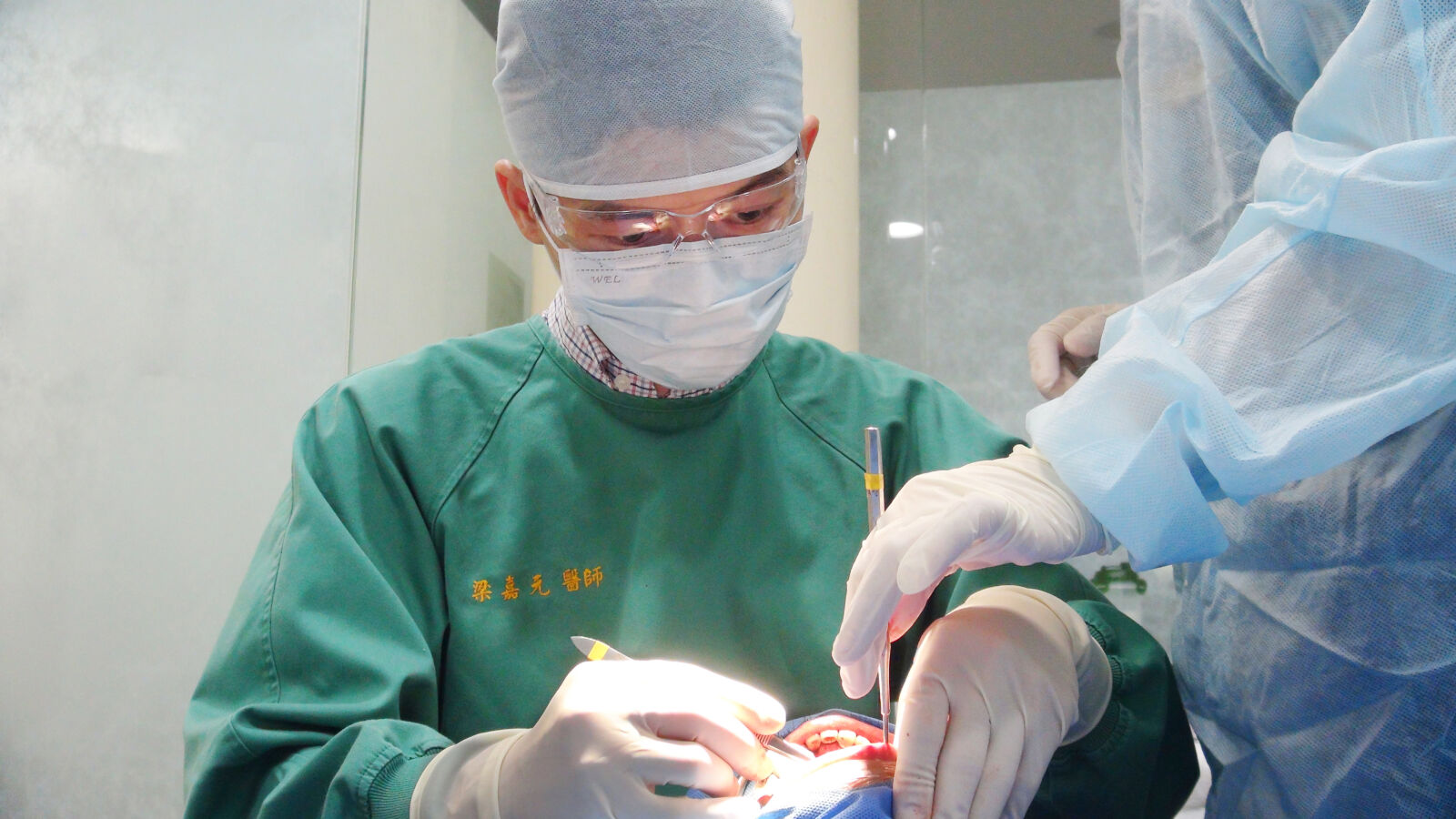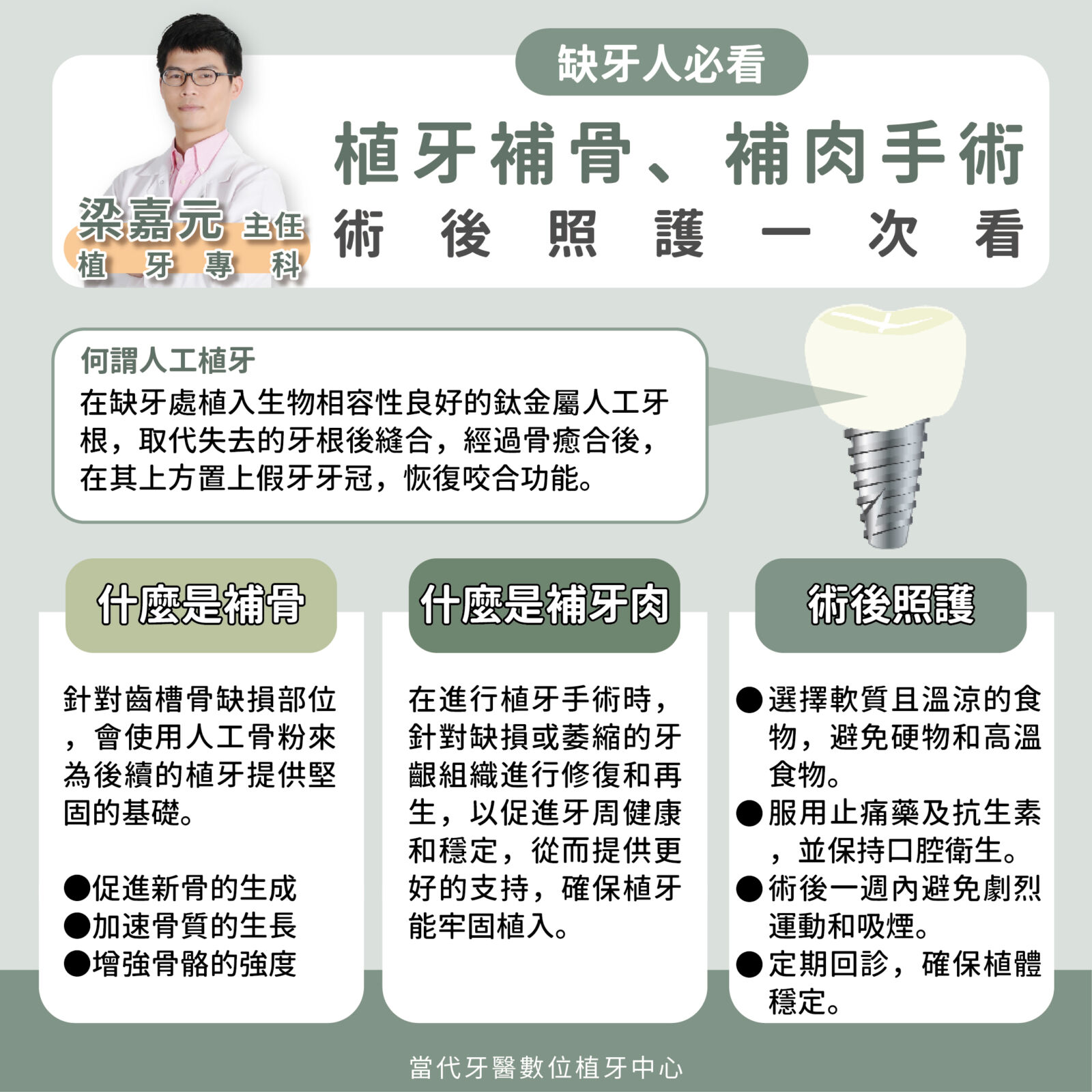[Media Report] Flexible use of bone powder is the key to successful dental implant treatment

CNEWS Convergence News Network reporters Hu Zhaoxin and Lin Youwei/Reporting from Taipei
Dental implant surgery is a common and effective method to solve the problem of missing teeth. Liang Jiayuan, director of dental implantology at the Contemporary Dentist Digital Dental Implant Center, a contemporary dental medical system, said that through dental implant surgery, patients can not only restore normal chewing function, but also regain a confident smile. However, successful dental implant surgery does not only rely on the superb skills of doctors and sophisticated equipment, but also bone-filling powder is a key factor.
Liang Jiayuan pointed out that dental implant bone filling is a surgery that uses artificial bone powder to induce bone growth at the location of alveolar bone defects. It can speed up bone growth and enhance bone strength. Before performing dental implant surgery, the doctor will first evaluate the condition of the oral cavity to confirm whether there is space in the alveolar bone to place the implant. If the congenital alveolar bone is too thin or the missing teeth have not been replaced for a long time, the alveolar bone is likely to shrink, leaving no suitable space for implants to be implanted. At this time, dental implant and bone replacement surgery is required.

Doctors shared that there are currently four common bone repair surgeries.
1.Alveolar ridge preservation:
During tooth extraction, bone powder, regenerative membrane, collagen and other materials are put into the cavity of the tooth to help the alveolar bone heal, retain the area of tooth bone in the extraction area, and maintain the width and thickness of the alveolar bone. The advantage is that tooth extraction and bone replacement surgery are performed at the same time, which reduces the number of operations and saves healing time. The wound is small, the patient's discomfort is greatly reduced, and it is conducive to subsequent dental implant surgery.
2.Sinus augmentation surgery:
It is suitable for the posterior area of the upper jaw where teeth have been missing for a long time. After the teeth are extracted, it is found that the depth of the dental implant area is insufficient and the cavity of the maxillary sinuses takes up too much space. Sinus augmentation surgery is required to obtain the required depth. During the operation, a window is opened on the side of the alveolar bone and bone powder is inserted into the sinus space. When new alveolar bone grows at the bottom of the sinus, the required depth for implant placement can be reached.
3.Horizontal bone grafting:
After tooth extraction, the first bone to be absorbed by the alveolar bone is the bone on the horizontal side. Therefore, horizontal bone replacement is one of the common bone replacement methods for dental implants. The purpose is to increase the horizontal volume of the upper or lower jaw bone, increase the width of the alveolar bone, and create an environment suitable for implant placement. The surgical method includes opening the gums first, inserting bone powder, then inserting a regenerative membrane, and finally suturing. After four months, the dental implant can be performed.
4.Vertical bone grafting:
In some patients, severe loss of alveolar bone affects the soft tissue, resulting in a lack of support for the bone spine and requires vertical bone replacement surgery. By repairing vertical bone defects and filling in a large amount of bone powder and regeneration membrane, many oral conditions that are not suitable for dental implants can be solved and strong alveolar bones can be rebuilt. Since the soft and hard tissues, height and width of alveolar bone and other issues need to be taken into consideration, the operation is the most difficult and tests the doctor's skills and experience.
After the bone repair surgery, in order to allow the wound to recover smoothly and the bone to heal as soon as possible, you must avoid the wound area when cleaning your mouth on the day after the surgery. Do not use mouthwash to rinse your mouth. Ice compress can be used to reduce the degree of swelling. At the same time, take the medicine prescribed by the doctor on time and do not stop taking the medicine without permission. In terms of diet, be careful to avoid eating hot, irritating and spicy foods; it is recommended to eat mainly soft and liquid foods for 1 to 2 weeks after surgery. As for daily habits, smoking, chewing betel nut and drinking alcohol are prohibited during the postoperative recovery period. Also avoid strenuous exercise or prolonged use of the mouth for sucking movements and talking. Maintain adequate sleep of more than 8 hours a day to improve your own immunity.
Liang Jiayuan said that bone powder plays an indispensable role in dental implant treatment. By filling bone defects and promoting new bone growth, patients can achieve a more stable and lasting dental implant effect. Therefore, when considering dental implant surgery, understanding and paying attention to the application of bone filling powder is a key step to ensure the success of the surgery.
2024© Copyright All Rights Reserved
